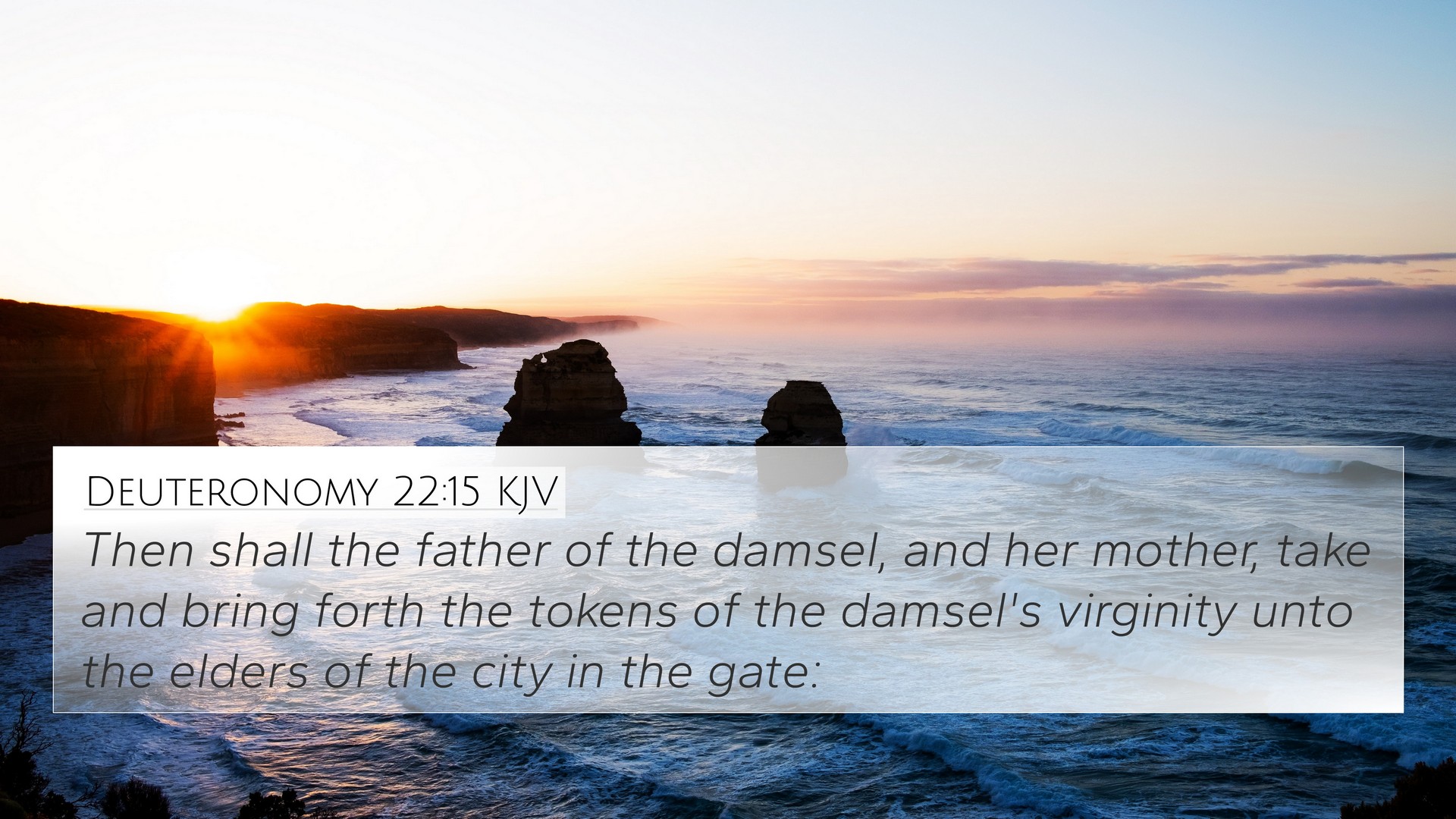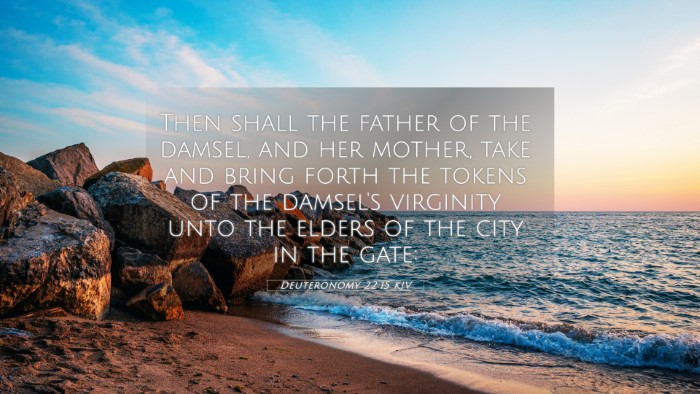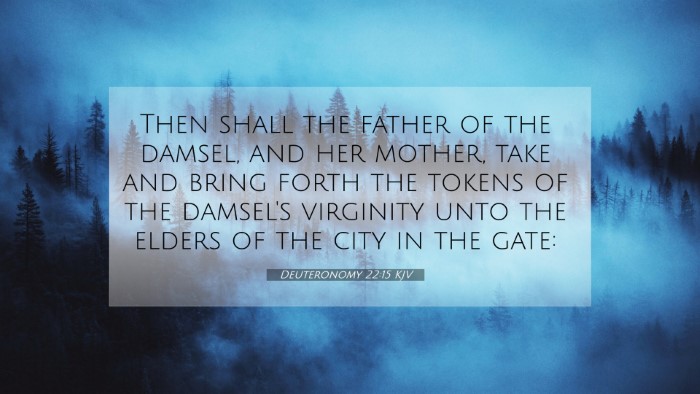Understanding Deuteronomy 22:15
Deuteronomy 22:15 states: "Then shall the father of the damsel, and her mother, take and bring forth the tokens of the damsel's virginity unto the elders of the city in the gate." This verse addresses the issue of a bride's virginity and the responsibilities surrounding it. Below, we explore its significant meanings through insights from renowned public domain commentaries: Matthew Henry, Albert Barnes, and Adam Clarke.
Context and Background
The context of Deuteronomy 22 involves laws concerning relationships, moral conduct, and the dignity of individuals within the Israelite society. The requirement of a father and mother to present proof of a daughter’s virginity underscores the importance of family integrity and societal values concerning chastity and marriage.
Commentary Insights
-
Matthew Henry's Commentary
Henry emphasizes the seriousness of marital fidelity within the community. He notes that this law protects the dignity of women, preventing false accusations that could lead to severe consequences for innocent parties. The tokens of virginity serve not only as proof but reinforce accountability among families.
-
Albert Barnes' Notes
Barnes elaborates on the practical implications of this law for ancient Israelite society. It serves as a deterrent against immorality and emphasizes the value placed on a woman’s chastity. The process establishes a formal procedure for addressing disputes regarding virginity, thus promoting social order.
-
Adam Clarke's Commentary
Clarke adds that the 'tokens' referred to in the verse can be interpreted as physical evidence of virginity, which highlights the physical aspect of purity in that cultural context. He discusses the transition of such laws into contemporary understanding and morality, emphasizing the underlying principles of honor and respect for individuals.
Thematic Connections
Deuteronomy 22:15 not only addresses specific issues of moral conduct but also shares thematic connections with other Bible verses. These connections enhance our understanding of biblical principles regarding purity, integrity, and communal responsibility.
- Leviticus 19:29 - Highlights the importance of not profaning the daughter of one's people.
- Proverbs 6:32 - Discusses the consequences of adultery and the dishonor it brings.
- 1 Corinthians 7:8-9 - Addresses the state of unmarried and widowed individuals, providing insight into purity.
- Matthew 19:4-6 - Jesus speaks on marriage, emphasizing its sacredness, resonating with the themes in Deuteronomy.
- Ephesians 5:3 - Encourages believers to avoid immorality, tying back to the purity discussed in this law.
- Hebrews 13:4 - Reinforces the honor of marriage and the importance of sexual faithfulness.
- 1 Timothy 5:14 - Discusses the importance of younger widows marrying and bearing children in faithfulness.
Cross-Referencing Biblical Texts
Examining Deuteronomy 22:15 in the broader biblical narrative shows how interconnected these scriptures are. By engaging in Bible verse cross-references, one can see the connections between Bible verses that emphasize purity, virtue, and social responsibility. Linking such Bible scriptures allows for a richer understanding of God’s expectations for personal conduct and community integrity.
Tools for Bible Cross-Referencing
- Bible concordance
- Bible cross-reference guide
- Cross-reference Bible study methods
- Bible reference resources
Conclusion
The study of Deuteronomy 22:15 reveals a layered understanding of community ethics and personal accountability within the biblical framework. By utilizing cross-references and comparative analysis, we can see the verse's relevance and application throughout the scriptures. Understanding such laws not only provides historical context but also encourages contemporary audiences to reflect on the values of integrity and honor in their lives.


